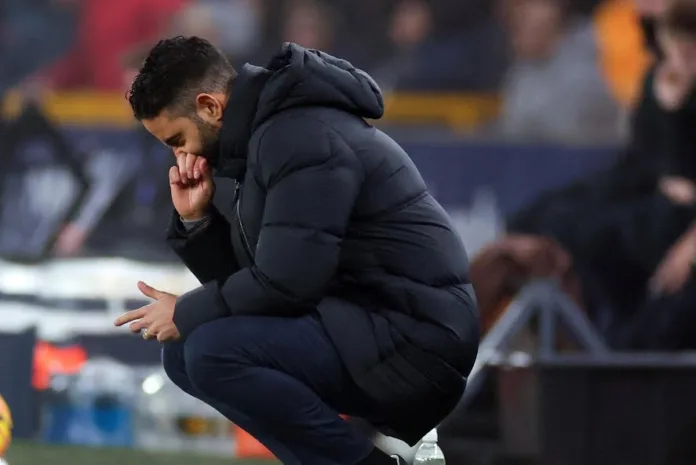Ruben Amorim’s appointment as Manchester United manager brought promises of revival, but the club’s struggles continue with an alarming lack of progress
Manchester United’s season has gone from bad to worse under new manager Ruben Amorim, whose arrival was supposed to signal a fresh start. Instead, after ten games in charge, the Portuguese coach has struggled to deliver meaningful improvement, leaving the Red Devils languishing in 14th place in the Premier League.
Hopes were high when Amorim replaced Erik ten Hag, whose tenure ended in chaos. Amorim, known for his success in Portugal, was seen as a potential saviour. However, the optimism has quickly faded. United’s 1-0 loss to Wolves on Boxing Day marked their eighth league defeat in 18 matches, a damning statistic that underscores the club’s alarming decline.
Amorim has made some bold decisions, including sidelining star forward Marcus Rashford, and minor improvements have been visible. Defenders Diogo Dalot and Noussair Mazraoui have shown better form, while Amad Diallo’s spirited performances offer a glimmer of hope. Yet, these positives pale in comparison to the broader issues plaguing the team.
United’s football remains uninspiring and devoid of purpose. The team lacks energy, creativity, and a cohesive game plan. Despite Amorim’s efforts to reduce the catastrophic individual errors that marred Ten Hag’s reign, United continue to concede soft goals and look toothless in attack. Their tally of just 21 league goals is shockingly low, with nearly a third of those coming in two matches.
The fixtures following Amorim’s appointment presented an opportunity for momentum, with matches against struggling sides like Ipswich and Everton. However, United failed to capitalise, and their performances against stronger opponents like Arsenal and Manchester City exposed glaring weaknesses. Instead of climbing the table, they’ve slipped further into obscurity.
Adding to the scrutiny is the context of Amorim’s appointment. Reports suggest he wasn’t Manchester United’s first-choice candidate, or even close. When Sir Jim Ratcliffe’s group made the decision to sack Ten Hag, options were limited. Amorim’s success in Portugal, where he managed in a less competitive environment, offered promise but also raised questions about his ability to thrive in the Premier League’s high-pressure, unforgiving atmosphere.
Comparisons to other managers only deepen the concern. Coaches like Unai Emery and Marco Silva struggled initially in the Premier League but eventually found their footing. The challenge for Amorim is whether he can adapt quickly enough to avoid being another cautionary tale.
The weight of managing Manchester United amplifies every decision, mistake, and result. Amorim faces intense scrutiny not only from fans and pundits but also from a fractured dressing room and an ownership group desperate for stability. The pressure to deliver immediate results is immense, and patience at Old Trafford is notoriously thin.
As the Red Devils prepare for a critical home clash against Newcastle, questions about Amorim’s suitability loom large. Is he the visionary leader capable of rebuilding a fallen giant, or another in a line of managers unable to meet the club’s lofty expectations?
While it’s too early to declare Amorim’s tenure a failure, the early signs are troubling. Manchester United fans, once filled with hope, now find themselves gripped by despair as their club continues to flounder.
